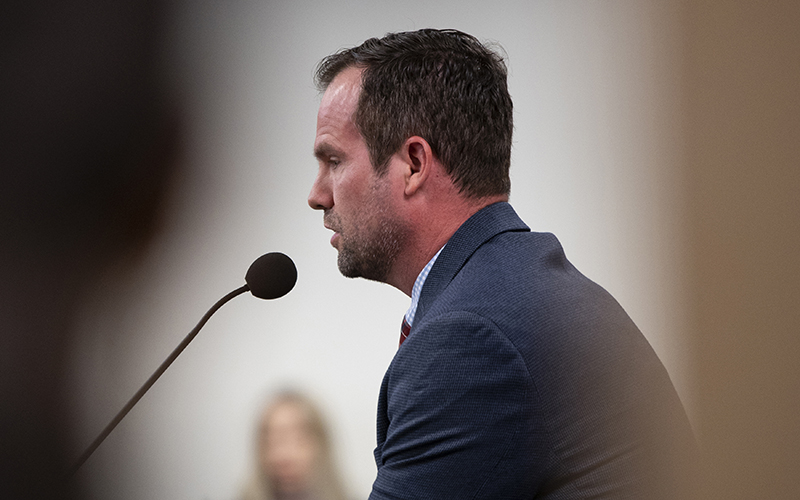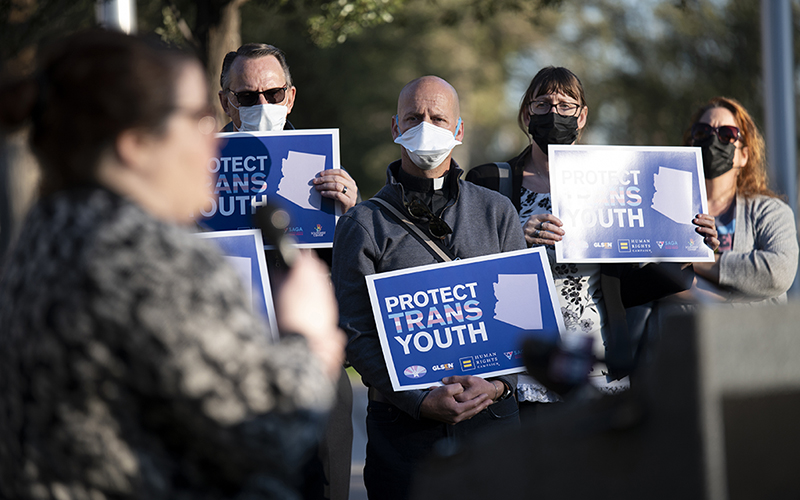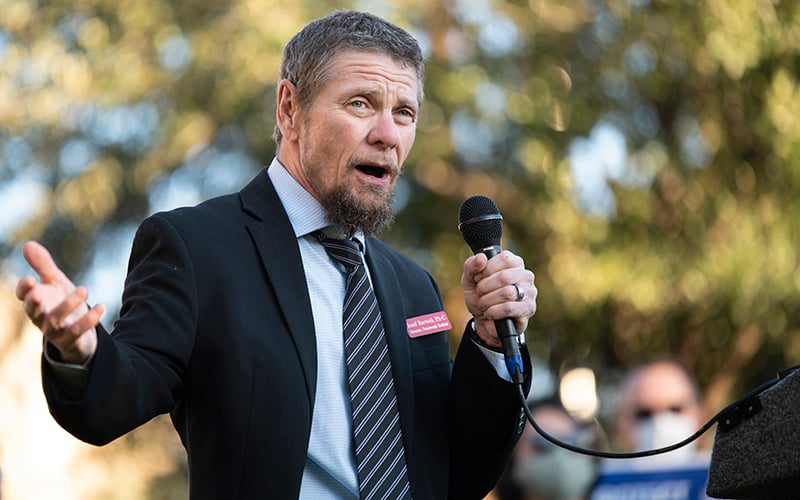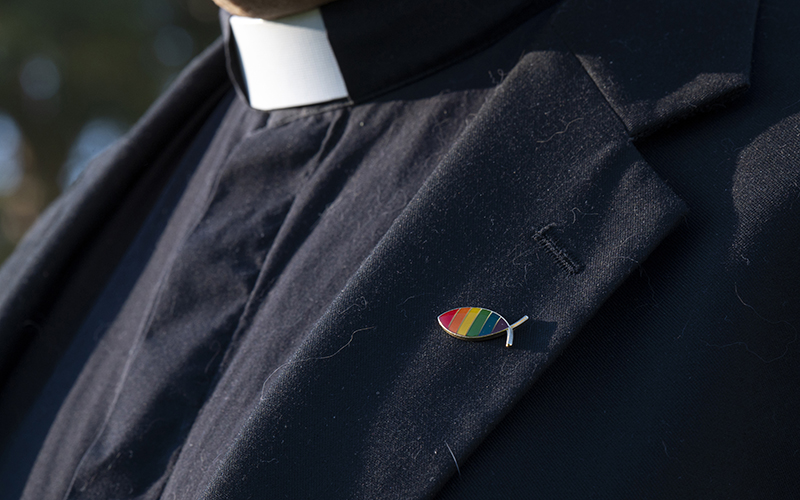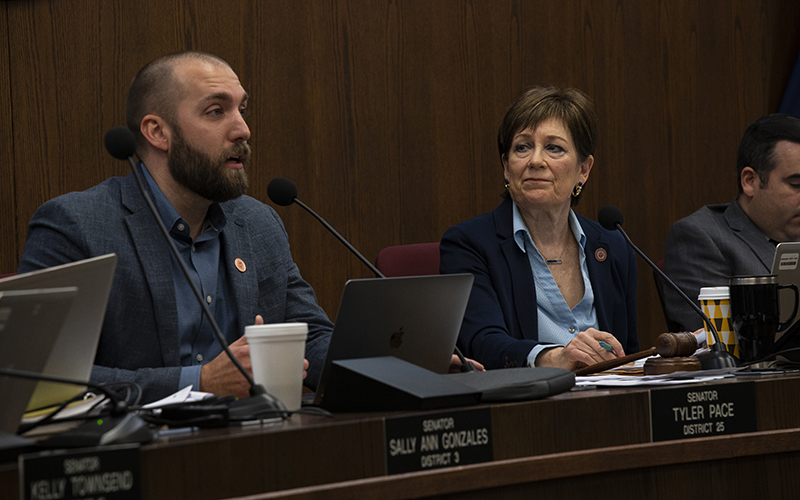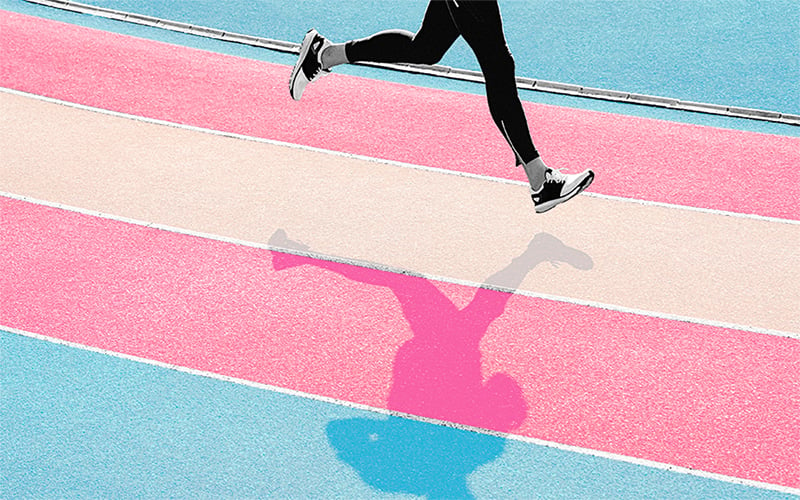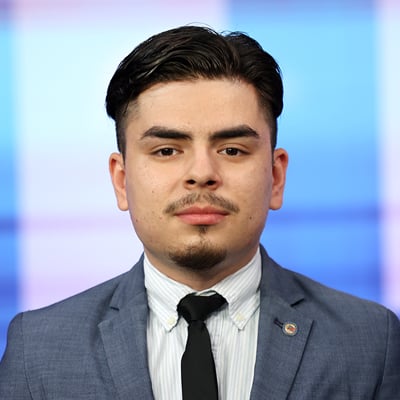PHOENIX – After an unprecedented number of bills targeting transgender youth became law across the country last year, advocates in Arizona are pushing back against a new wave of bills introduced in this session.
Arizona lawmakers have proposed bills that prohibit transgender youth from recieving gender-affirming health care and limit their ability to express their gender identity in school bathrooms, school classrooms and school sports. The Human Rights Campaign and the Equality Federation, which are national LGBTQ advocacy organizations, warned that the measures would put the well-being of transgender youth at risk.
“Transgender students don’t want or need to have a culture war built on their backs for the political expediecy of adults; they simply want to be kids,” the two organizations said in their combined annual state comprehensive report, released this year.
That’s why Jennifer Brown, a Scottsdale mother of a transgender daughter, is opposing Senate Bill 1165, which would prevent transgender girls in grades K-12 from playing on girls sports teams. Dubbed the “Save Women’s Sports Act,” it was passed by the Senate and has had two readings in the House.
“These are just kids, and they just want to play” sports, Brown said. “This isn’t about scholarships, this isn’t about big money. This is about kids trying to be part of a team and trying to be as normal as humanly possible.”
During high school in northern Virginia, Brown said, her daughter joined a competitive rowing team that physically exhausted her and enabled her to sleep at night, even when her mind was racing “10,000 miles an hour.” Cronkite News is not using the daughter’s name at the request of the family.
“For the first time, she was just one of the girls,” Brown said, noting her daughter found comfort in “just being a part of that group at a time when her body was the source of everything that she found to be terrible and against what she believed herself to be.
“In crew, her body was doing something right and it was something that she needed.”
For transgender youth, sports teams often provide a source of normalcy during a time when they are transitioning, Brown said. It’s where their friends and teammates are, and for many LGBTQ youth, sports are an outlet that supports their mental health.
A 2021 national survey by the Trevor Project, a nonprofit organization focused on suicide prevention for LGBTQ youth, found that 42% of people ages 13 to 24 who identify as LGBTQ considered suicide in the previous year. The rate increased to 52% for transgender and nonbinary youth.
“There are real consequences to the discrimination perpetrated upon LGBTQ+ people, and particularly transgender youth,” Bridget Sharpe, the Arizona state director of the Human Rights Campaign, said during a virtual event this month with parents of transgender youth in Arizona, noting that “55% of LGBTQ+ Arizonans have reported that they’ve suffered from depression in just the past two weeks alone.”
The primary sponsor of SB 1165, Rep. Nancy Barto, R-Phoenix, has said the legislation would protect women and their sports.
“Women are the targets of a situation that is nonsensical,” Barto said during a Senate floor session in February. “It makes no sense, it’s not scientific and every study that has any merit will show that the differences between men and women are significant and continuing, even with hormone therapy.”
Opponents of the bill are labeling it as divisive and ostracizing, but Sen. Warren Petersen, R-Gilbert, has said it does not prevent transgender people from participating in sports.
“This bill is about whether a male should play in a female sport,” Petersen said during the Senate floor session in February. “This does not stop anyone who identifies themselves as transgedner from playing in sports.”
Cathryn Oakley, the state legislative director and senior counsel at the Human Rights Campaign, said SB 1165 and similar bills are predicated on a misunderstanding of what it means to be transgender.
“Proponents of these kinds of bills really work to create the idea that there is somebody who is essentially a boy pretending to be a girl in order to gain some kind of athletic advantage in women’s sports and use that to get themselves a college scholarship,” Oakley said.
The Williams Institute at UCLA, which conducts research on sexual orientation and gender identity, estimated in September 2020 that 3,650 youth ages 13 to 17 identified as transgender in Arizona. A 2017 report by the Centers for Disease Control and Prevention estimated that almost 2% of high school students identify as transgender and 35% of transgender students attempt suicide.
“Trans folks need to be believed and they need to be seen and heard,” Brown said. “You have to take it for what they are, for what they tell you they are. So if a trans girl says she’s a trans girl, then she’s a girl.”
13 Arizona bills take on transgender issues
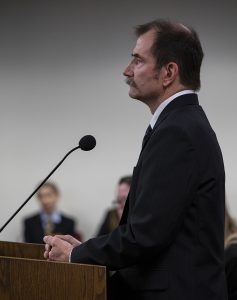
Dr. Paul Hruz asks the Senate Health and Human Services Committee in Phoenix to pass Senate Bill 1138 on Feb. 9, 2022. Hurz maintains surgery makes issues worse for transgender people. (Photo by Genesis Alvarado/Cronkite News)
In addition to SB 1165, 12 other bills have been introduced this session that would impact the rights of the transgender community, according to the Human Rights Campaign.
Bills that have passed in one chamber
- SB 1138 passed in the Senate (primary sponsor Sen. Warren Petersen, R-Gilbert): would bar physicians and other providers from providing gender-transition surgery to anyone under 18 years old.
- HB 2161 passed in the House (primary sponsor Rep. Steve Kaiser, R-Phoenix): would require schools to disclose all personal information about a child to their parents, including information about a child’s emotional, mental and physical health.
Bills that have been assigned to committee but aren’t moving
- SB 1045 (primary sponsor Sen. Wendy Rogers, R-Flagstaff): would prohibit public or private school employees from “coercing” students into keeping their identity from their guardians. The bill did not make it out of committee.
- HB 2011 (primary sponsor Rep. John Kavanagh, R-Fountain Hills): would require students to seek their parents’ permission before joining any student group or club involving “sexuality, gender or gender identity.”
- HB 2285 (primary sponsor Rep. John Fillmore, R-Apache Junction): would prevent school districts and charter schools from providing sex education or AIDS education before sixth grade and emphasize biological sex not gender identity.
- HB 2292 (primary sponsor Rep. John Fillmore, R-Apache Junction): would require birth certificates to only use male or female markers.
- HB 2293 (primary sponsor Rep. John Fillmore, R-Apache Junction): public schools would not be required to use a student’s gender pronouns that differ from the sex listed on a student’s birth certificate.
- HB 2314 (primary sponsor Rep. John Kavanagh, R-Fountain Hills): use of restrooms, changing facilities and sleeping quarters at public schools would be limited to biological sex assigned at birth.
Bills that have not been assigned to committee
- SB 1130 (primary sponsor Sen. Wendy Rogers, R-Flagstaff): would ban gender-affirming health care for Arizonans younger than 18.
- SB 1046 (primary sponsor Sen. Wendy Rogers, R-Flagstaff): would designate sports teams into men’s, women’s and coed based on “biological sex.”
Bill that did not pass
A bill regarding the use of only male or female to indicate an individual’s gender on state documents did not pass in the House.
LGBTQ advocates were also tracking HB 2495, which would ban “sexually explicit materials” from school classrooms. The House amended the bill to remove the word “homosexuality” from the definition of sexual conduct. With the amendment, the bill applies to sexual conduct in general and does not specifically target gender identity or sexual orientation.
During the March 2 virtual event with parents, Sharpe spoke in opposition of SB 1138, which would prevent physicians from providing gender-transition surgery to people younger than 18.
“SB 1138 is a cruel and potentially life-threatening bill that would harm trans youth who rely on gender-affirming services,” Sharpe said. “Medical decisions should be made between parents, children and their medical teams, not politicians.”
Kristin Downing, the mother of a nonbinary child, said it’s her right as a parent to make the medical decisions for and with her child. She added that involving the government in those decisions is “an awful idea.”
“Every decision that we make for and with our kids is done with so much consideration and care and discussions with the doctor and then discussions at home with the family,” Downing said. “None of it is taken lightly. We are constantly thinking about my child’s best interests, well-being and mental health.”
Bills make transgender youth ‘feel alone and isolated’
Eric Swank, associate professor in sexuality and queer studies at Arizona State University, said these bills have a detrimental impact on the mental health of transgender people. Transgender people, he said, experience anticipated stigma, where they prepare for hardships that have not yet occurred. Swank said they also fear their gender identity will be restricted or punished.
“It hurts people’s mental health, which leads to a sense of estrangement from one’s community, estrangement from family, greater suicide, greater drug use, greater tobacco use and more domestic violence,” Swank said. “It translates into so many behaviors and emotions that are detrimental to people’s well-being.”
When these bills are introduced, they enter the public sphere and become known and spoken about, causing transgender young people to become a “subject to fear,” Swank said.
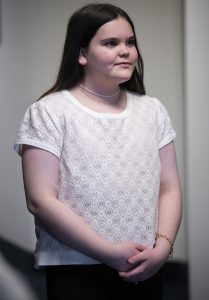
Skyler Morrison, 13, is a transgender girl whose family moved from Texas because of that state’s “anti-LGBT” laws. On Feb. 9, 2022, she told the Arizona Senate Health and Human Services Committee in Phoenix that her family will leave Arizona if similar legislation is passed. (Photo by Genesis Alvarado/Cronkite News)
Oakley said that even if a bill does not become law, it still has lingering repercussions because transgender youth can hear adults talking about them.
“It does make them feel ostracized, it does make them feel scared, and it does make them feel alone and isolated,” Oakley said. “That is something that the adults who are a part of this should absolutely be ashamed of. They are putting what they think are political interests above the best interests of these kids that they’re supposed to be taking care of and protecting.”
Eighty-five percent of transgender and nonbinary youth said recent debates about state laws restricting the rights of transgender people have negatively impacted their mental health, according to a poll conducted by Morning Consult on behalf of the Trevor Project.
Delia Hogan, the parent of a transgender child based in Phoenix, said her daughter is aware that “she, and only she, will have to suffer the consequences” of her freedoms being restricted if the bills are passed, and not the politicians who are “taking them away.”
“I am here today because my daughter is only 11 and now knows what it feels like to be discriminated against by her own government, the institution that is supposed to protect her,” Hogan said during the Human Rights Campaign virtual event. “She doesn’t understand why she can’t just be who she has without having to defend it.”
As transgender youth continue to face legislation that could impact their rights and mental health, Rep. César Chávez, D-Phoenix, called on other legislatures to reconsider these bills and protect the human rights of all individuals.
“We have been able to either veto bills or kill bills, in terms of them stopping in their tracks through the legislative process, but somehow they keep coming back,” Chávez said. “It gives me no pleasure to have to continuously bring up the conversation of why this is wrong, when humanistically, we should all know that this is wrong.”

